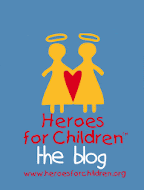Today I had the pleasure and honor of sitting down with Dr. Barbara Jones, current president of the Association of Pediatric Oncology Social Workers (APOSW) and Co-Director of the Institute for Grief, Loss and Family Survival in the School of Social Work at The University of Texas at Austin. Dr. Jones teaches graduate classes including Loss and Grief: Individual, Family and Cultural Perspectives and Social Work in Health Care, has published numerous articles regarding chidhood cancer and palliative care, and is a member of several committees and boards including the LiveSTRONG Adolescent/Young Adult Alliance, Alliance for Childhood Cancer and Social Work Hospice/Palliative Care Network. She has devoted her professional life to researching and advocating for children with cancer and pediatric palliative care, grief and loss issues.
All this and she made time to sit down and inspire and motivate an exhausted and cranky graduate student!
In addition to picking her brain about current pediatric oncology social work opportunities and projects currently underway in Austin, I couldn't resist the opportunity to ask her a few questions with the Heroes for Children blog in mind. Always willing to help an organization devoted to the cause of childhood cancer, she graciously agreed to share her expert opinion with me.
What do you see as the most pressing concerns or issues facing pediatric oncology social work today?
Dr Jones: I think it's crucial for social workers to be present across the treatment continuum, to be part of the team alongside the healthcare professionals, from diagnosis through treatment and into survivorship. Social workers are currently employed to assist families during the crisis situation of treatment, but for patients who survive, and for those families whose child does not, support services are necessary to fully address ongoing psychosocial issues.
How can pediatric oncology social workers best assist families as they face childhood cancer?
Dr. Jones: Be quiet and listen! Sit with a child and be present, be their witness, and then be their advocate. But first, you have to listen to them.
What's new and exciting on the horizon in this field?
Dr. Jones: Well, first, we're doing a tremendous job. Right now the cure rate for childhood cancer is 80%, which means that there are roughly 270,000 childhood cancer survivors today. I think the challenge facing us right now is how do we as social workers help survivors incorporate this monumental experience into their lives as they move forward, an experience that certainly shapes their identity as they mature and grow. For example, one of the things I often hear from survivors is how grateful they are for their experience, which is not necessarily something you would automatically think of! So I think we need to address this aspect of childhood cancer - how do we assist survivors in the longterm as they assimilate their cancer experience into their lives?
If you had advice and/or requests for a nonprofit designed to help families facing childhood cancer, what would they be?
Dr. Jones: First, patients need financial support for the basic expenses of living. If a mother is in the hospital with her child, she's not going to be thinking about paying the electric bill. Often a parent will have to quit her job in order to take care of her child with cancer, and then you have the issue of childcare for other children in the house. So money for basic necessities is the first step.
Then, I think funding for support services after the child leaves the hospital is something that is desperately needed, but often not provided. A child might come back to the clinic once a year for a check-up, and does not have the free access to counseling and other resources that are provided by the hospital social worker during treatment. In particular, parents often encounter a lot of trauma after the fact, once the child is in remission and they finally have time to process that they almost lost their child. If we can get support services in place that are comprehensive and far reaching, that would be fantastic.
Thank you so much Dr. Jones for taking the time out of your very busy schedule to inspire, motivate and remind me why I'm working so hard.
Subscribe to:
Post Comments (Atom)







No comments:
Post a Comment